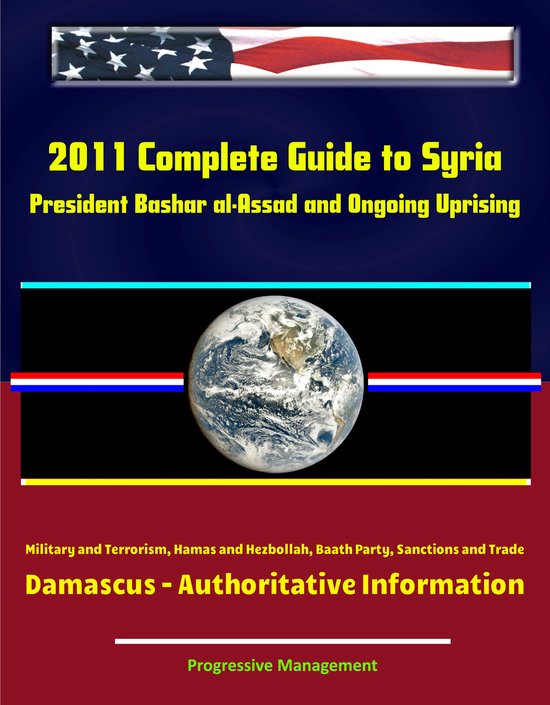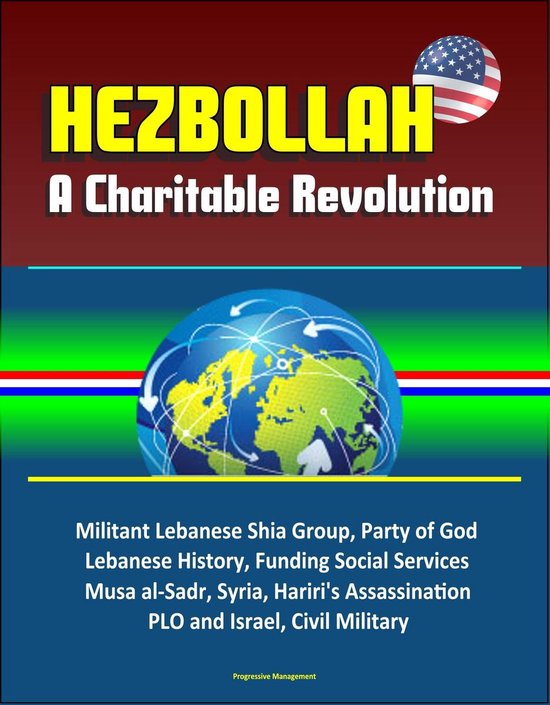
2011 Complete Guide to Syria: President Bashar al-Assad and Ongoing Uprising, Military and Terrorism, Hamas and Hezbollah, Baath Party, Sanctions and Trade, Damascus - Authoritative Information
This massive compilation provides a complete picture of Syria with over 600 pages of up-to-date information, featuring professional analysis and background data about the nation and its leadership. There is coverage of the ongoing uprising and the crackdown against the protesters; the current President, Bashar al-Assad, and the long rule of his father; the government, military, human and religious rights, terrorism and U.S. sanctions, exports, trade, and business information, statistics on all facets of Syrian life, State Department travel related information, and much more.
Extensive histories put the current protest situation in the Middle East into perspective. There is material from many agencies of the American government, including the experts at the Federal Research Division. Syria country background data provides data on key parameters, people and history, industry, natural resources, U.S.- Syria relations, sanctions, travel and business information, and more.
The Library of Congress Federal Research Division Country Study is an exceptional review of Syria and its history. Books in the Country Studies series describe and analyze "political, economic, social, and national security systems and institutions, and examin[e] the interrelationships of those systems and the ways they are shaped by cultural factors. The authors seek to provide a basic understanding of the observed society, striving for a dynamic rather than a static portrayal. Particular attention is devoted to the people who make up the society, their origins, dominant beliefs and values."
Syria, with a population of approximately 21 million, is a republic under the authoritarian regime of President Bashar al-Asad. The president makes key decisions with counsel from a small circle of security advisors, ministers, and senior members of the ruling Ba'ath (Arab Socialist Renaissance) Party. The constitution mandates the primacy of Ba'ath Party leaders in state institutions and society. President Asad and party leaders dominate all three branches of government. In 2007 Asad was confirmed president for his second seven-year term in a "yes or no" referendum that was neither free nor fair in the eyes of local and international human rights advocates. Security forces reported to civilian authorities. The government systematically repressed citizens' ability to change their government. The security forces committed arbitrary or unlawful killings, caused politically motivated disappearances, and tortured and physically abused prisoners and detainees with impunity. Security forces arrested and detained individuals under poor conditions without due process. Lengthy pretrial and incommunicado detention remained a serious problem. The judiciary was not independent. There were political prisoners and detainees, and during the year the government sentenced to prison several high-profile members of the human rights and civil society communities. The government violated citizens' privacy rights. The government imposed severe restrictions on civil liberties: freedoms of speech and press, including Internet and academic freedom; freedoms of assembly and of association, including severe restrictions on nongovernmental organizations (NGOs); and freedoms of religion and movement. An atmosphere of corruption pervaded the government. Violence and societal discrimination against women continued, as did sexual exploitation, increasingly of Iraqi refugees, including minors. The government discriminated against minorities, particularly Kurds, and severely restricted workers' rights.
This is a privately authored news service and educational publication of Progressive Management.
| Auteur | | Progressive Management |
| Taal | | Engels |
| Type | | E-book |
| Categorie | | Mens & Maatschappij |




